Have you ever been out hunting and realized that your feet were not as warm as they usually are? This can be a huge issue, especially if you’re planning on being outside for a long time. Fortunately, there are some ways to keep your feet warm while hunting! We’ve compiled some things that will help keep your feet nice and cozy.
Table of Contents
How to Keep Feet Warm While Hunting
Hunters need to keep their feet warm while hunting. Try taking some of these steps before heading out into the woods or onto a frozen lake, and you should be able to avoid any problems with cold feet!
Hunting is not always an easy thing, especially when it comes down to weather conditions that are less than ideal. One such situation would be when the weather is too cold, or when there are freezing temperatures. When this happens, it’s important to make sure that your feet stay warm because if they get cold you can run into some serious problems with them later on down the line. Not only will the tips below help keep your feet nice and toasty while out in these frigid conditions, but they’ll also help you avoid several issues that can be brought on by cold feet.
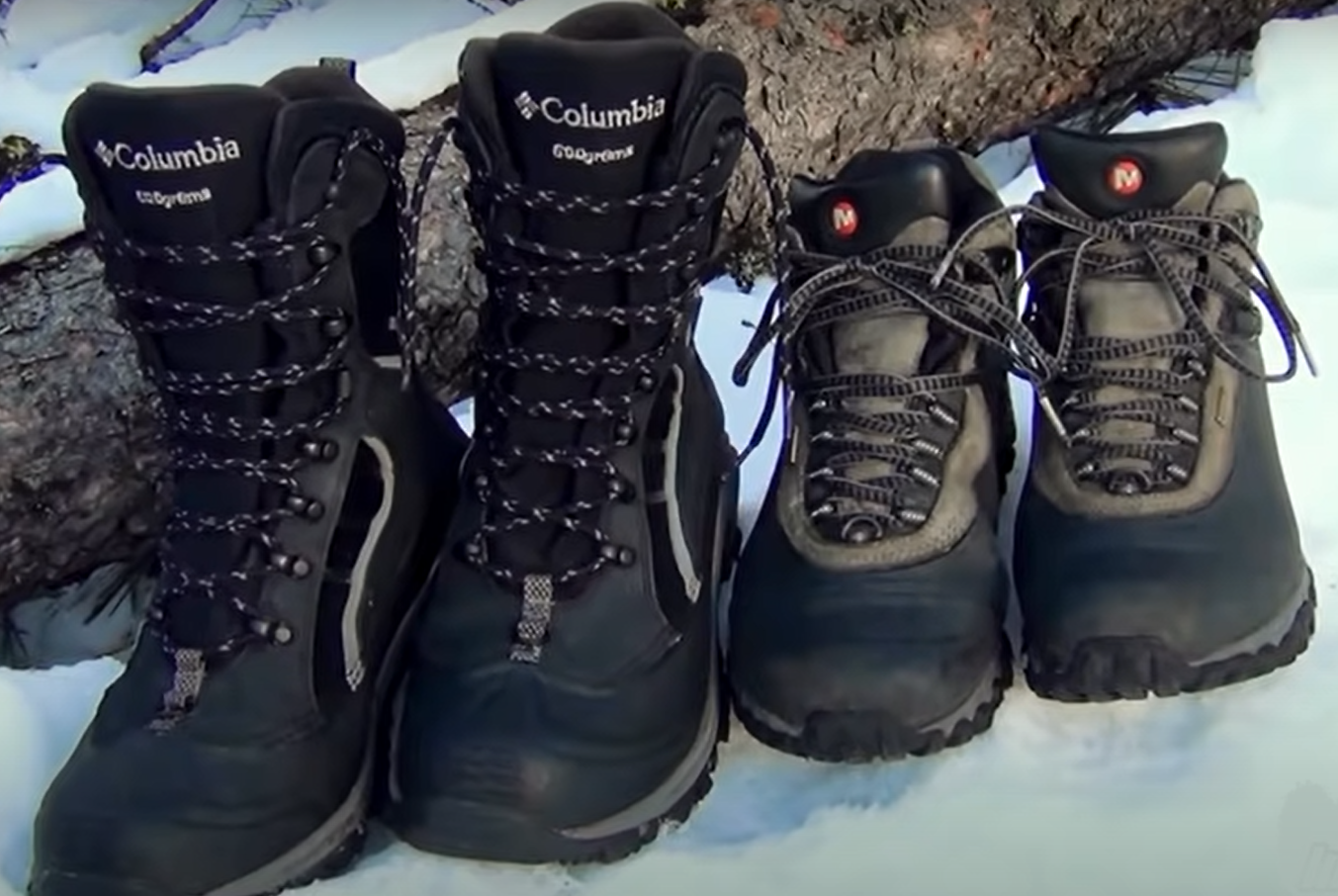
Plan Ahead
Do not wait until the last minute to prepare for your hunting trip. You may just have a bad time because you didn’t plan, which is why it’s important to do so before every outing.
Planning is an important step in keeping those feet as warm as possible while hunting because some hunters may have their luck extend into colder months which makes warmer clothing even more essential than usual. In addition, make sure that any gloves or mittens are high-quality as well as water-resistant because this ensures they’ll last longer through some tough conditions.
Figure out what clothes you will wear and how many layers. You can always take things off, but if you’re not prepared with enough on then it’s going to be a bad time for sure! For example, maybe wearing one pair of socks isn’t good enough. Instead, bring two or three pairs so your feet stay nice and warm all day long – no matter the weather conditions outside.

If you haven’t already, be sure to familiarize yourself with the area where your hunting trip will take place. Take note of possible shelter locations and routes that lead there. Knowing these things in advance could save your day if things get tough!
Foods to Eat Before and During the Hunt
It is important to eat properly before going on a hunt. The rule of thumb is to have a nutrient-rich meal at least three hours before your hunting time, this will provide you with enough energy and stamina during the day. Carbohydrates are great sources of fuel for the body while the glucose from fruits can be used as an immediate source of energy when needed.
Also, foods rich in potassium such as bananas help maintain fluid balance inside cells that may get lost due to sweating caused by exertion or high altitude conditions which cause dehydration thus making hunters more susceptible to hypothermia.
In addition, it’s important not just what foods but how much food should be eaten? For example, one cup (150g) of cooked pasta contains approximately 500kcal. But it is the amount of carbohydrate-rich food you have that matters.
In addition to the meal before going on a hunt, it’s also important to have snacks that can provide you with enough energy. For example, why not try beef jerky as they are high in protein and low carbohydrates which will help control blood sugar levels?
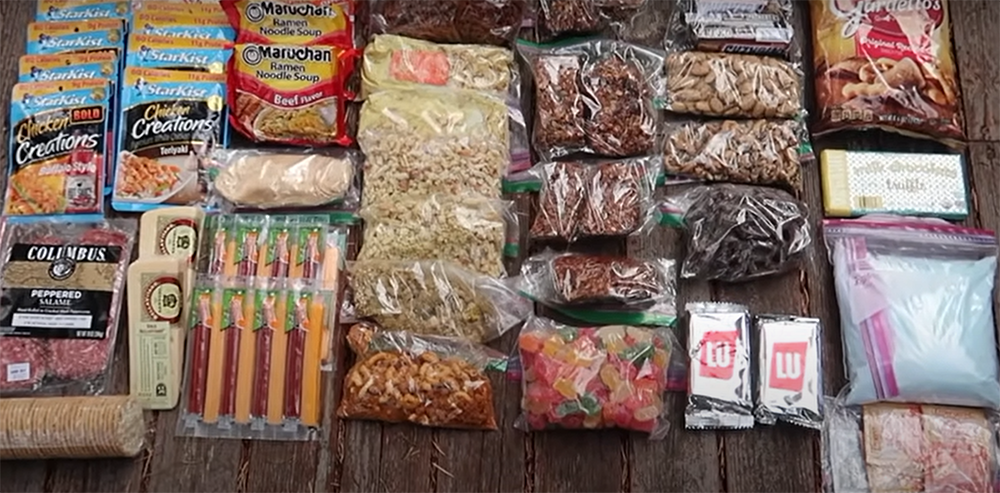
Hunters should also eat before they go to bed at night, this gives their bodies enough time to digest everything properly and will ensure hunters won’t have indigestion or nausea during pre-dawn hours just because they haven’t eaten anything yet.
During the hunt, hunters should make sure they drink enough liquids and eat foods rich in carbohydrates to provide the body with energy.
Hunters may also consume a small amount of protein-rich food like nuts because studies have shown that eating some proteins after prolonged exercise does not cause an additional increase in muscle damage but it helps promote recovery.
Nuts contain good amounts of monounsaturated fats (MUFAs) which studies show to reduce inflammation caused by exercise-induced muscle damage. In conclusion, make sure you eat a nutrient-rich diet no matter how much physical activity you do.
In addition, keep in mind that meat is low in carbs so adding pasta or rice together will give you the most out of your meal while hunting.
Reduce Perspiration
Hunting in the winter is a lot of fun, however, keeping your feet warm can be challenging. To keep your feet from getting too cold while hunting you should reduce perspiration. Wearing breathable socks and making sure your boots aren’t too tight will help reduce the amount of perspiration that occurs. This will keep your feet from getting too cold.

Perspiration can also cause your boots to get wet, which will make it harder for you to keep warm. If your feet do become too cold while hunting then changing into a dry pair of socks is the best way to go.
Also look out for signs of frostbite such as numbness or tingling sensations in sensation in any part of the foot including toes, soles and heels.
Another way to keep feet warm while hunting is by wearing a vapour barrier liner inside your boot. These liners work because they prevent sweat from reaching the outside layers, trapping in warmth and keeping you dry at all times. The only downside to these liners is that they can be a bit pricey.
Use Foot Powder
When you think of winter, snowy days and feet covered in ice come to mind. If there is one thing that hunters do not need, it’s cold feet. You can prevent this by using foot powder or even baby powder before heading out into the snow for your hunt. You want to dry out your feet and these powders help.
Foot powder is a must-have for keeping warm while hunting in the winter. It helps keep your feet from sweating too much which can lead to frostbite or even worse, wet socks! But what about those high-tech insoles that they sell at stores? They are expensive and do not always work as well as they say before you buy them. Make sure they will fit into your boots properly by testing them first. Leave the insoles inside of the boot overnight and see if they still fit right when you take them back out; this will be able to tell you how comfortable (or uncomfortable) they may be after wearing them for hours during a hunt.
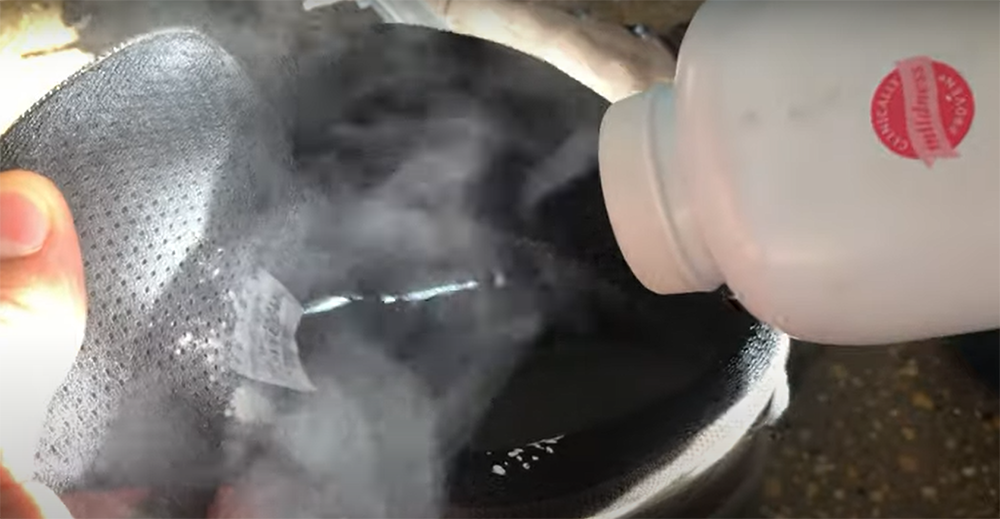
Foot powder not only will help to keep your feet warm but make them feel dryer as well after a long day on the mountain. You can also try to put it on at night before bed so that when you get up the next morning your feet will be dry and ready for a new day of hunting.
So remember hunters- use foot powder before heading out this winter season helps keep toes warm even while sitting still waiting for a game to come by! Simply sprinkle some inside each boot and enjoy warmer toes!
Use Cotton Balls
Cotton balls are a cheap and easy way to keep your feet warm while hunting. All you need is a pair of heavy socks, some cotton balls, and tape or rubber bands. To start, take the cotton balls and stuff them in the bottom of each sock until it starts piling up on top. Then, wrap some tape around them so that they don’t fall into your boot when wearing them. Finally, put on the socks and boots.
This technique is especially useful in really cold weather or when there are snow drifts that make it easy to lose your footing. If you keep your feet warm while hunting, then you can stay out longer without having to go back for a break due to feeling too cold! So remember cotton balls next time you head out into the woods before dawn!
When trying these boots on, make sure not to overstuff with too many cotton balls as they can be uncomfortable when walking long distances.

Be careful putting them on – you don’t want the extra layers bunched up in your boot! Make sure that the bottom of each sock is filled with cotton balls before beginning the next step, otherwise, it will start bunching up into your boot and become uncomfortable while hunting. Wrap tape around this layer so that they stay put inside of your socks without falling inside of your boots during wear. Finally, slip on both pairs of heavy-duty winter socks along with a pair of warm insulated hunting boots for added warmth outdoors! If you keep your feet warm while hunting then you’ll be able to remain out in the woods hunting for longer periods without having to go back due to feeling too cold!
Take Along Warm Water in a Bottle
A good way is to take along a water bottle filled with warm water when you go hunting in cold weather. Warm the water bottle by placing it near your clothing to keep your feet warm.
If you are camping or hunting at night, then you can use this method by filling a small thermos with hot liquid and keeping it next to your sleeping bag while you sleep at night.
This way you can avoid buying expensive heat packs as well as save yourself from the hassle of preparing those before hunting. This method will not only help you stay comfortable but also prevent frostbite or any other kind of injury that can happen due to extreme temperatures.
When it gets too cold, you can simply pour the hot water on your boots and enjoy the warmth for hours! That is not so easy to get with heat packs.
Drink Hot Chocolate with Butter
If you want to keep your feet warm while hunting, then I recommend drinking hot chocolate with butter. You can also put on some nice wool socks and wear a pair of boots that will help trap in all the warmth throughout the day.
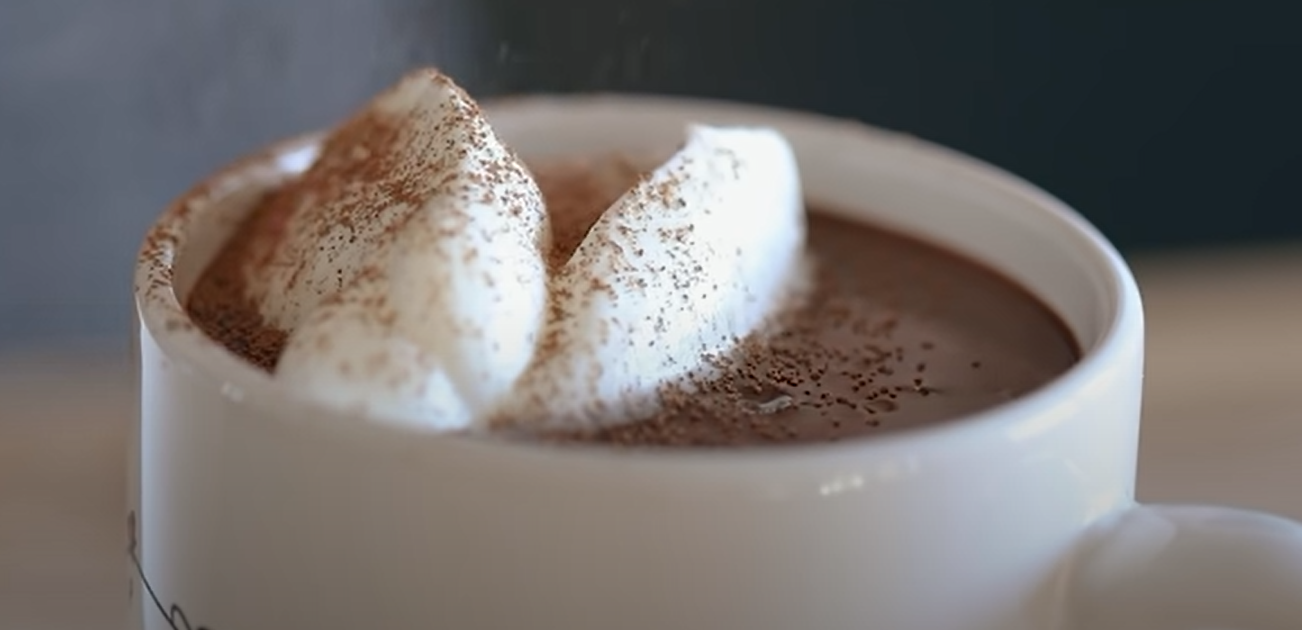
I read in a book once that Native Americans used to drink hot chocolate with butter on hunting trips. This old recipe has been passed down through their family for generations and it is supposed to not only keep your feet warm but also give you some extra energy while out hunting during cold winter days.
The book also mentioned that you can add some other spices to your hot chocolate mix. Some of these include red peppers, cloves, ginger and/or cinnamon. Again, this is an old Native American recipe so I would not be surprised if the individual ingredients have been substituted for something else over time.
Of course, it’s important to mention that drinking too much caffeine will lead to dehydration which does nothing good for anyone during winter hunting trips even when staying at camp all day long! Also, remember not to carry around a flask with alcohol or anything similar since this might seem appealing after being out in below zero temperatures but could ruin any chance of keeping warm throughout the hunt.
Beware of Metal Conductors
It’s a good idea to beware of metal conductors when hunting. Metal objects are good at conducting heat away from the body, so you want to avoid wearing metal rings or bracelets when hunting.
Metal conductors can be found anywhere in nature and it’s unexpected where they might show up. For example, if you sit down on logs or rocks with your bare legs touching them during wintertime, these surfaces will steal warmth away from your skin very quickly! It is important to check for any surface material that conducts coldness before sitting down because it could result in hypothermia-inducing conditions for hunters who do not take precautions against this potential threat.

This is why many hunters recommend dressing into multiple layers of clothing while out there to stay warm even when one layer becomes wet due to perspiration (sweat). It is best to start early in the morning and continue hunting throughout the day.
In this situation, insulation is key! Metal conductors should never come into direct contact with skin because they will draw heat right out of anything that comes within proximity.
So, if you are going to be hunting in the snow or on the ice this winter, make sure that all of your clothing and equipment is insulated! On top of keeping feet warm while hunting, it’s also a good idea to keep hands and other extremities covered as well.
Stay Dry
Hunting in the winter can be a wet experience if you are not prepared for it. You need to keep your feet dry or they will quickly get cold and start hurting. So, what do I mean by “Stay Dry”?
This means that you should wear some waterproof boots with good insulation on them so that no moisture gets into the boot around the ankles and freezes up between each step as this is very uncomfortable and also much colder than just having damp socks because ice crystals form at every single movement of your foot.
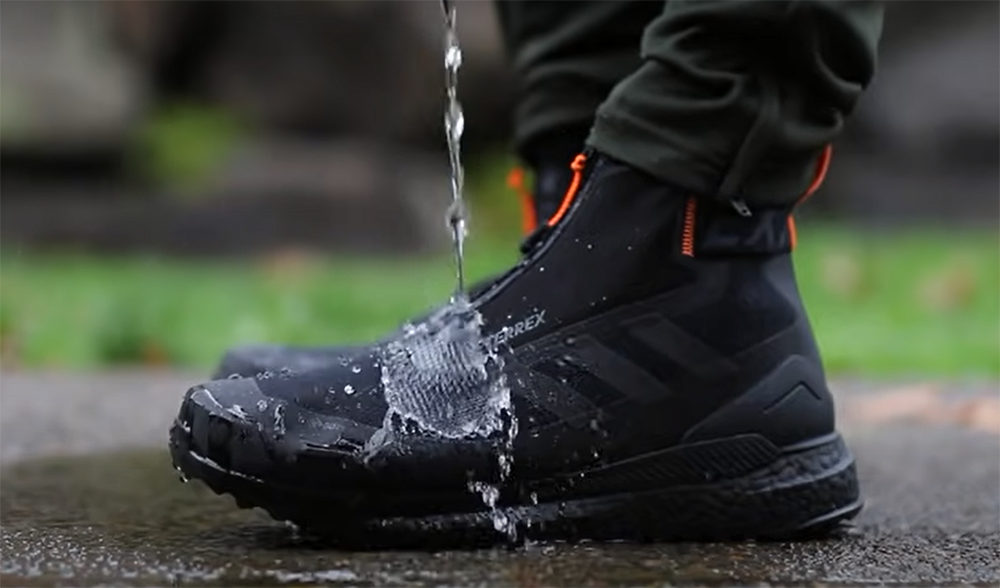
- Do not wear cotton socks. Cotton absorbs moisture and keeps it against your skin, making you much colder than neoprene or merino wool socks.
- Wear a dry pair of shoes to change into when done hunting for the day so that they can begin drying out overnight as damp boots in your pack will freeze up over time – rendering them useless until defrosted back at home! Also, ensure these spare shoes are waterproof too if there is any chance of water getting inside from walking through wet grass etc.
- Bring an extra towel to wipe down your feet after removing soggy footwear as this stops the build-up of ice crystals between each step which makes walking painful even with proper on. This also allows you to dry your feet off more effectively.
- Lastly, if you are hunting in snow, there is no need to worry about waterproofing the outside of the boots as they will get wet anyway due to mud or melting snow – but do ensure that they have good insulation inside!
Keep Your Head Covered and Warm
Your head is the most vital part of your body which you need to keep warm. The heat generated by your head will help in keeping other parts of your body warm too. Covering it with a hat or hoodie can be one way to do this, however if possible, try getting yourself one that comes with ear flaps attached as well for an added layer of warmth.
If you keep your head covered, your feet will be kept warm too.
Things That Help to Keep Feet Warm
- Socks – Wool or fleece socks help to insulate and keep feet warm. You can put on some layers of socks to avoid having cold feet.

- Electric Socks – These socks are designed for hunters to wear while hunting in very cold conditions. They feature a battery-operated heating element that is turned on with the push of a button.
- Boot Warmers – These boot warmers operate like electric socks, but they fit inside your shoes and boots where you need them most (on your feet). The only difference between these and electric socks? Boot warmers can be reused over and over again.
- Keep head covered – In general, as we have already mentioned above, keeping hands/feet/head warm will go a long way toward keeping the rest of your body from feeling uncomfortable due to being too cold or exposed to harsh weather conditions outside!
- Sock Liner – Sock liners provide additional insulation against the cold.
- Avoid Cotton – Avoid wearing cotton socks or any clothing made of this material if you are hunting in extremely cold conditions, as it will not keep your body warm enough to remain comfortable for long periods outside during winter weather.
- Layer up – If you do happen to get too hot while out on a hunt, simply remove layers one by one until you feel comfortable again! This way, no matter what the outdoor temperature is like.
- Boots – A good pair of boots with a thick sole will work best for keeping your feet warm while hunting in cold weather conditions, especially when it is snowing.
- Insulated Boot Pads – If your feet still get cold, even when wearing boots during the winter months, you may want to invest in an insulated boot pad. These are designed to fit inside any shoes or boots and provide additional insulation against the cold. They can help keep you comfortable while hunting no matter how low temperatures dip!

- Insulated Mat – A well-insulated mat helps to provide insulation from the cold ground while you are sitting in a deer stand or on your way to and from your hunting spot.
- Heat Packs Hand Warmers – Heat Packs Hand Warmers are a must for hunting in extremely cold weather, as they can provide up to ten hours of heat and will work inside your gloves or pockets.
- Toe Warmers – Toe Warmers are another great choice for keeping your feet toasty warm when you’re hunting during the winter. These reusable toe warmers provide heat in a pocket or sock and can give you up to six hours of warmth.
FAQ
How do climbers stay warm?
Climbers wear boots to keep their feet warm. They are typically insulated with nylon or wool fabric, and they can also be waterproofed to help prevent snow from entering the boot. Climbing shoes should not fit too snugly because climbers don’t want to cut off circulation in their feet.
How do I keep my core warm while hunting?
In cold weather, it’s important to wear a hat or hooded sweatshirt. In addition, hunters should use outerwear that is insulated with down or another type of material that traps heat and keeps body warmth from escaping.
What is the primary danger of sweating heavily while hunting in cold weather?
Hunters can become chilled if they start to sweat heavily while hunting in cold weather. Sweating makes the body more susceptible to hypothermia because it causes a loss of water and therefore, heat retention.
How much water do you need each day hunting?
Hunters should drink about one litre of water each day during the hunt. This will vary depending on outside factors such as weather and physical activity.
Which material provides warmth even when wet?
Wool provides warmth even when wet because it does not absorb water and will dry out quickly.
What should every prepared hunter carry for outdoor emergencies?
Every prepared hunter should carry a pocket knife or multitool, waterproof matches or lighter, first aid kit, whistle to signal for help and sunscreen.
Useful Video: 4 Hacks To Keep Your Hands and Feet Warm!
Final Thoughts
Now that we’ve looked at some great options for keeping your feet warm and dry while hunting. Whether you are stalking whitetail deer or sitting in a tree stand on the edge of your favourite food plot. You’ll have to decide what is best for you. But I hope this article opens up some new ideas instead of just rehashing old ones that may not work well for everyone.






Leave a Reply